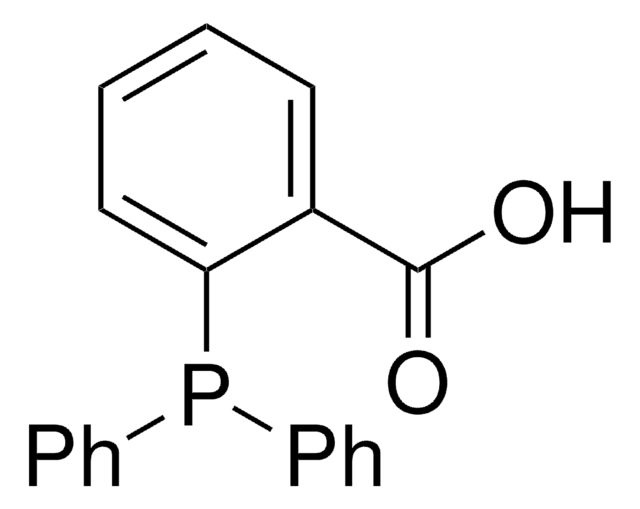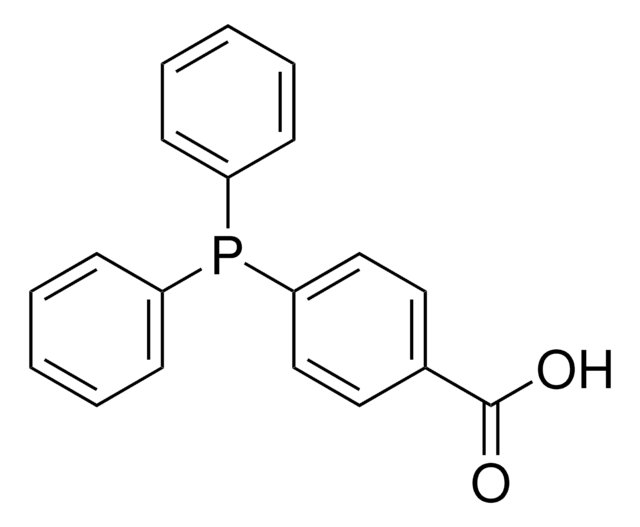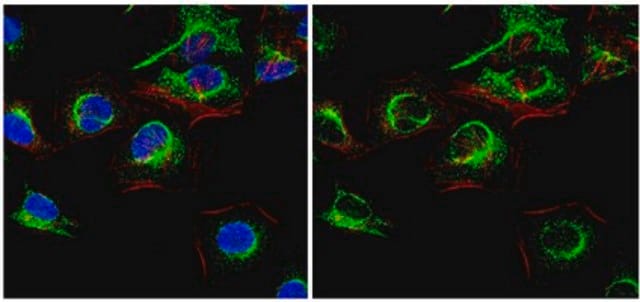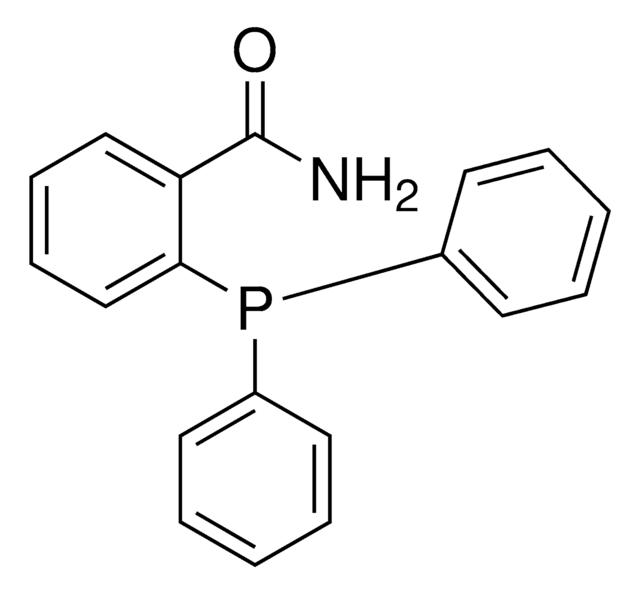679011
2-(Diphenylphosphino)terephthalic acid, 1-methyl 4-pentafluorophenyldiester
97%
Synonyme(s) :
1-Methyl-4-(pentafluorophenyl)-2-(diphenylphosphino)-1,4-benzenedicarboxylate
About This Item
Produits recommandés
Niveau de qualité
Pureté
97%
Forme
solid
Capacité de réaction
reaction type: click chemistry
Pf
109-111 °C
Température de stockage
−20°C
Chaîne SMILES
COC(=O)c1ccc(cc1P(c2ccccc2)c3ccccc3)C(=O)Oc4c(F)c(F)c(F)c(F)c4F
InChI
1S/C27H16F5O4P/c1-35-27(34)18-13-12-15(26(33)36-25-23(31)21(29)20(28)22(30)24(25)32)14-19(18)37(16-8-4-2-5-9-16)17-10-6-3-7-11-17/h2-14H,1H3
Clé InChI
OURNVXDJALDDIG-UHFFFAOYSA-N
Application
- Staudinger ligation reagent for the conjugation of amine and azide containing compounds or biomolecules.
- The amine functionalized molecule first reacts with the phosphine through the activated pentafluorophenyl ester.The azide-molecule is then reacted with the newly labeled phosphine to form the iminophosphorane, and the aza-ylide is subsequently captured by the methyl ester to yield the covalent conjugated product.

The Staudinger Ligation: A High-Yield, Chemoselective, and Mild Synthetic Method
Produit(s) apparenté(s)
Code de la classe de stockage
11 - Combustible Solids
Classe de danger pour l'eau (WGK)
WGK 3
Point d'éclair (°F)
Not applicable
Point d'éclair (°C)
Not applicable
Faites votre choix parmi les versions les plus récentes :
Certificats d'analyse (COA)
Vous ne trouvez pas la bonne version ?
Si vous avez besoin d'une version particulière, vous pouvez rechercher un certificat spécifique par le numéro de lot.
Déjà en possession de ce produit ?
Retrouvez la documentation relative aux produits que vous avez récemment achetés dans la Bibliothèque de documents.
Notre équipe de scientifiques dispose d'une expérience dans tous les secteurs de la recherche, notamment en sciences de la vie, science des matériaux, synthèse chimique, chromatographie, analyse et dans de nombreux autres domaines..
Contacter notre Service technique








